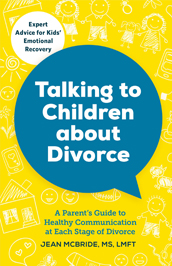Understanding Parental Alienation: Impact On Children And Families + Essential Tips

- This blog contains affiliate links, which we may receive a commission for purchases. The decision is yours, whether or not you decide to buy.
Divorce and separation are emotionally turbulent times for families, particularly when children are involved. Amidst the legal and emotional complexities, parental alienation can emerge as a distressing issue, significantly impacting children's well-being and family dynamics.
What is Parental Alienation?
Parental alienation occurs when one parent manipulates or influences their child to reject the other parent. This manipulation can take various forms, including:
- Negative Campaigning: Consistently speaking negatively about the other parent in front of the child, undermining their authority or character.
- Limiting Contact: Restricting or sabotaging communication or visitation between the child and the alienated parent.
- Encouraging Rejection: Actively encouraging the child to reject the alienated parent, sometimes through emotional blackmail or false accusations.
These actions are often driven by unresolved animosity, emotional distress, or a desire for control, but they can have devastating consequences for the child's emotional development and relationship with both parents.
Signs and Characteristics of Parental Alienation
Recognizing parental alienation involves understanding its subtle yet damaging signs. Here’s how to spot the signs:
- Unwarranted Hostility: The child displays intense anger, fear, or unwarranted negativity towards the alienated parent without valid justification.
- Lack of Ambivalence: The child shows no mixed feelings or ambivalence towards the alienated parent, perceiving them as entirely negative.
- Independent-Thinker Phenomenon: Insisting that their negative opinions about the alienated parent are their own, despite clear influence from the alienating parent.
- Absence of Guilt: Showing no remorse or guilt for their harsh treatment of the alienated parent, even if it causes distress.
These signs indicate that the child's perception and behavior towards the alienated parent are being manipulated, often to serve the interests or emotions of the alienating parent.
Causes of Parental Alienation
Several factors contribute to the development of parental alienation:
- High-Conflict Divorce: When divorcing parents engage in prolonged, acrimonious disputes, children can become casualties in their battles, leading to emotional manipulation or coercion.
- Personality Disorders: Parents with conditions like narcissistic personality disorder may view their child as an extension of themselves and use alienation tactics as a means of control or retaliation.
- Influence from Others: Friends, relatives, or new partners of the alienating parent may inadvertently or intentionally contribute to the alienation process, reinforcing negative perceptions of the alienated parent.
- Emotional Vulnerability: Children who are emotionally vulnerable or caught in the middle of parental conflicts may be more susceptible to manipulation or coercion, especially if they seek to please the alienating parent.
Understanding these underlying factors helps to contextualize why parental alienation occurs and why it can be so difficult to address once it has taken root.
Effects on Children
The effects of parental alienation on children can be profound and long-lasting:
- Emotional Distress: Children may experience confusion, anxiety, and depression as they struggle to reconcile their love for both parents with imposed feelings of rejection or hostility.
- Identity Issues: Conflicting emotions and loyalties can lead to identity crises, self-esteem issues, and difficulties forming secure attachments in relationships.
- Relationship Challenges: Long-term difficulties in forming and maintaining healthy relationships may arise, affecting their social and emotional development.
- Behavioral Problems: Children may exhibit behavioral issues such as aggression, withdrawal, academic decline, or substance abuse, as a result of the emotional turmoil and conflicted loyalties they experience.
These effects underscore the urgent need for early intervention and support to mitigate the long-term impact of parental alienation on children's well-being.
Essential Tips for Dealing with Parental Alienation
Dealing with parental alienation requires a proactive approach and supportive strategies. Here are essential tips to help navigate this challenging situation:
1. Maintain Open Communication: Foster open and honest communication with your child. Reaffirm your love and commitment despite any negative narratives they may hear from the alienating parent. Encourage them to express their feelings freely and validate their emotions without disparaging the other parent.
2. Seek Professional Support: Consider seeking the guidance of a qualified family therapist or counselor experienced in parental alienation. Therapy provides a neutral environment where family members can express feelings constructively and work towards rebuilding trust and repairing relationships.
3. Document Interactions: Keep detailed records of interactions with the alienating parent, especially concerning visitation schedules, communications, and instances where alienation tactics are evident. Documentation can serve as crucial evidence if legal intervention becomes necessary.
4. Stay Consistent: Maintain consistency in your behavior and parenting approach. Demonstrating stability and reliability provides a sense of security for your child amidst the turmoil caused by parental alienation. Establish and adhere to routines, boundaries, and expectations that prioritize your child's well-being.
5. Focus on the Child: Always prioritize your child's best interests and emotional health. Avoid engaging in negative behaviors or retaliatory actions against the alienating parent, as this can further exacerbate conflict and distress for your child. Create positive and nurturing experiences during your time together to strengthen your parent-child bond.
6. Educate Yourself: Learn about parental alienation, its causes, and its effects on children and families. Understanding the dynamics involved can help you recognize warning signs early and respond effectively to protect your child's well-being. Stay informed about legal rights and available resources to address parental alienation in your situation.
7. Build a Support Network: Surround yourself and your child with a supportive network of friends, family members, and professionals who understand the challenges of parental alienation. Seek out support groups or online forums where you can connect with others facing similar experiences. Sharing experiences and strategies can provide valuable emotional validation and practical advice.
8. Practice Self-Care: Dealing with parental alienation can be emotionally draining. Prioritize self-care by engaging in activities that promote relaxation, stress relief, and personal fulfillment. Whether it's exercise, hobbies, meditation, or spending time with supportive loved ones, taking care of yourself enables you to better support your child during this difficult time.
By implementing these practical tips and seeking appropriate support, you can navigate parental alienation more effectively and promote healthier relationships within your family. Every situation is unique, and finding the right strategies that work for your family may require patience and persistence. Your commitment to your child's emotional well-being and resilience can make a significant difference in mitigating the impact of parental alienation over time.
Conclusion
Parental alienation is a complex and distressing issue with far-reaching implications for children and families. By understanding its signs, causes, and effects, and implementing practical strategies like the ones mentioned above, we can take proactive steps to support families navigating divorce or separation. Through compassionate intervention, legal support, and increased awareness, we can work towards healthier family dynamics and brighter futures for all involved.
If you or someone you know is experiencing parental alienation, seeking professional guidance and support is crucial. Together, we can promote environments where children can thrive emotionally and psychologically, even amidst the challenges of family breakdowns.
Disclaimer: The information in this blog post is for educational and informational purposes only. It is not a substitute for professional advice or treatment. The author and publisher make no warranties about the completeness, accuracy, or reliability of the information. Use the information at your own risk and always consult a qualified professional for advice on your individual situation. The author and publisher will not be liable for any losses or damages arising from the use of this information.
PHOTO: JUAN PABLO SERRANO
You may also like
Books
Buy now from Amazon
- The Family Lawyer’s Guide to Separation and Divorce
- Talking to Children About Divorce
- Parenting Apart
Podcast
Kate Daly is co-founder of amicable and host of the The Divorce Podcast. Kate created The Divorce Podcast to discuss and demystify divorce, separation and co-parenting in the UK. In each episode, Kate is joined by experts in their field to explore divorce and separation from every angle.
Articles
- Getting Back With Your Ex: The Pros And Cons
- How To Be Great Parents Through Separation And Beyond
- Splitting Assets Fairly In Divorce
Parenting professionals
Related Posts
-

Navigating Social Media During Separation: Essential Dos and Don’ts in the UK
-

Is Silence Destroying Your Marriage? How Poor Communication Leads to Divorce (And What You Can Do About It)
-

When Is the Best Time to Start Family Mediation in the UK? | Guide for Separating Couples
-

The Real Cost of Divorce: Hidden Expenses and Smart Savings
-

Support For Men Going Through Divorce: Finding Community, Guidance, And Strength



.jpg)


